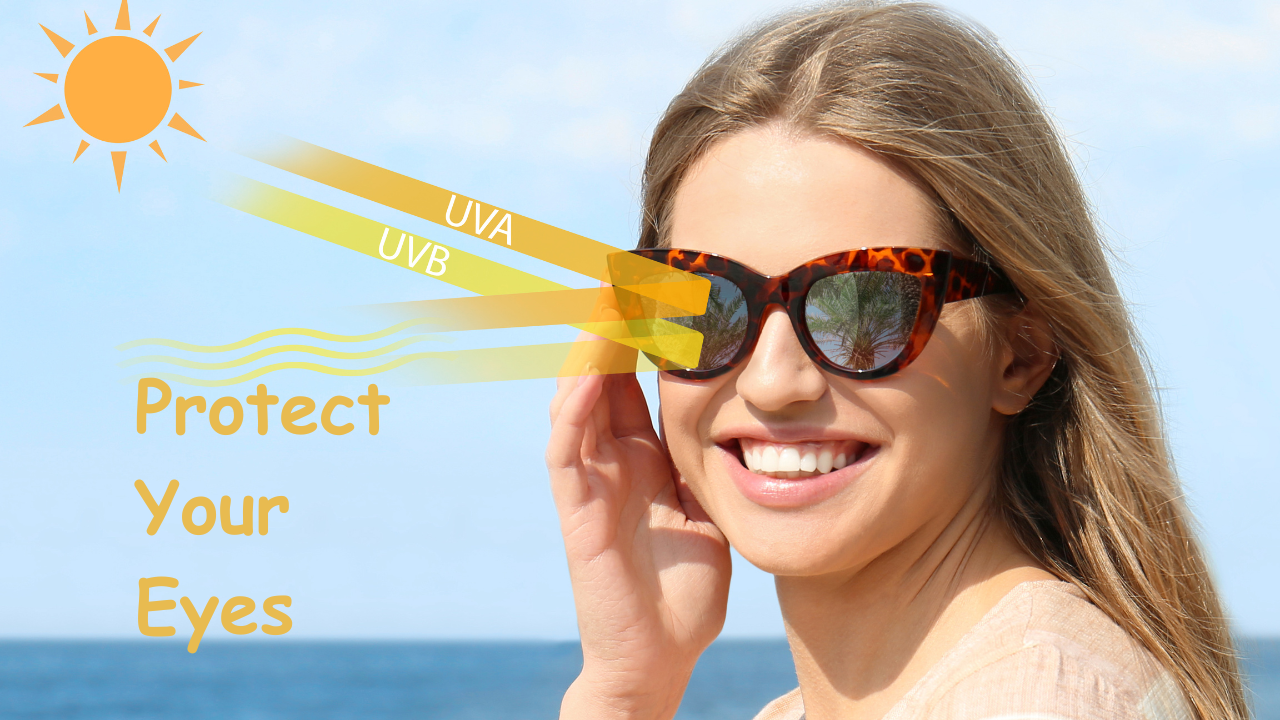-
news
-
Health
The shocking UV truth: How sunlight is silently damaging your eyes; Experts tell ways to prevent them
These preventive measures can significantly reduce the risk of developing serious eye conditions related to UV exposure.

Image – Canva
Exposure to ultraviolet (UV) radiation is a daily reality, but many people are unaware of its serious effects. eye healthAcute and long-term exposure to UV rays from the sun can cause a variety of eye problems, ranging from short-term irritation to long-term conditions that can impair vision.
Dr. Amrita K Chaturvedi, Senior Consultant and Assistant Professor at Amrita Hospital, Faridabad explains ultraviolet radiation It contains more energy than visible or infrared light, making it particularly harmful. As a result of ozone depletion and climate change, humans are now exposed to higher levels of UV radiation, increasing the risk to our eyes. “Many eye diseases are associated with both acute and cumulative UVR exposure,” she says, highlighting the need for preventive measures.
Eye conditions related to UV exposure
The most immediate effects of UV radiation on the eyes are photokeratitis Or ultraviolet keratitis. This condition has been compared to a “sunburn” of the eye and can result in painful symptoms such as redness, tearing, and a gritty feeling in the eyes. Dr Nikhil Seth, HOD-Ophthalmology at Marengo Asia Hospitals, says that “acute UV exposure can lead to photokeratitis, which can cause redness, sensitivity to light and the sensation of having a foreign body in the eye.” Common sources of UV radiation that can trigger this condition include welding arcs, ice reflections, and germicidal UV lamps.
Reading: World Arthritis Day 2024: These lifestyle changes can reduce symptoms
Chronic UV exposure also speeds up growth cataractsA condition where the eye’s natural lens becomes cloudy, impairing vision. “People who spend a lot of time outside without proper eye protection have a higher risk of developing cataracts,” says Dr. Chaturvedi. Studies have consistently shown that individuals exposed to UV rays for long periods of time have a higher incidence of cataracts.
Another important risk is pterygiumA noncancerous growth on the white of the eye that can spread to the cornea, potentially interfering with vision. Dr. Seth cautions that pterygium is often associated with frequent exposure to the sun and can cause irritation and discomfort.
UV radiation also plays a role in the development of skin cancer Around the eyes, including basal cell carcinoma and squamous cell carcinoma. Dr. Chaturvedi explains that ultraviolet rays are a major contributor to ocular surface squamous neoplasia (OSSN), which includes both precancerous and cancerous lesions on the surface of the conjunctiva and cornea. “UV rays are a significant factor in the development of cancer around the eyes,” she says.
Reading:Is social media trend ruining your skin? Here’s what Indian women should use
Finally, long-term UV exposure may increase age-related risks macular degeneration (AMD), a condition affecting the retina that causes central vision loss. This is especially worrisome for older adults, as AMD remains a leading cause of vision loss.
Protecting your eyes from UV damage
Both experts stress the importance of protecting your eyes from UV rays. sunglasses Which blocks 99-100% of UV rays, the most effective form of protection. Dr. Seth recommends choosing sunglasses with a wraparound design to ensure that no UV light enters through the edges. He added, “Wearing a wide-brimmed hat can reduce the amount of UV radiation reaching your eyes by about 50%.”
In addition to sunglasses, UV-blocking contact lenses can provide additional protection, although these should be used with sunglasses for full coverage. Dr. Seth also suggests avoiding prolonged exposure to the sun between 10 a.m. and 4 p.m., when the UV rays are the strongest. Applying broad-spectrum sunscreen around the eyes is also essential, as it helps protect the delicate skin in that area from UV damage, although caution should be taken to avoid getting sunscreen in the eyes.
Children are especially sensitive to UV damage because their larger pupils and more transparent eye tissue allow more light to enter sensitive areas of the eye. Dr. Chaturvedi emphasizes the need for early intervention: “It is important to protect children’s eyes from UV rays, as cumulative damage starts from an early age.”
By following these preventative measures – wearing UV-protective sunglasses, limiting sun exposure, and monitoring eye health with regular exams – you can significantly reduce your risk of developing serious eye conditions related to UV exposure. Can. Maintaining good eye health is a lifelong commitment, and protecting your eyes from the invisible threat of UV rays is an important step.
Get the latest news live on Times Now with breaking news and top headlines from around the world.
cataracts


